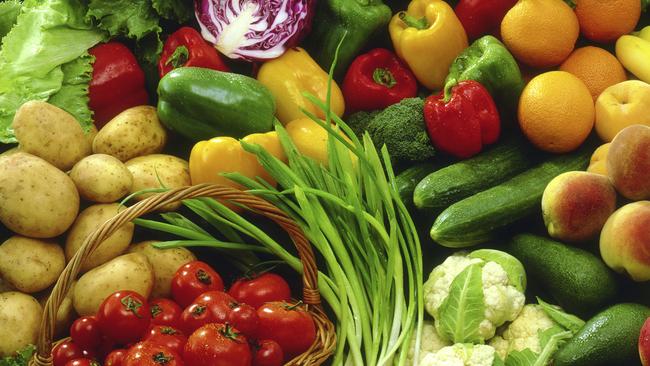Talking Point: Locally grown food can spark state economy
THE mentality that the only good market is an export market must be challenged, writes Christine Milne.

Opinion
Don't miss out on the headlines from Opinion. Followed categories will be added to My News.
EVERYWHERE I go across Australia people can’t stop telling me how much they loved their trip to Tasmania, how beautiful our state is and how delicious our food and beverages are.
While we should be proud of our outstanding producers, a couple of important reasons to support local food get lost in all the enthusiasm about the highest end products.
Locals know most Tasmanian produce is sold interstate or overseas, that’s why it’s often hard to find locally grown fruit, vegetables and meat in the supermarkets.
It’s why we flock to farmer’s markets when they are on.
Tasmanian produce is often shipped interstate before it makes its way back to our supermarkets, reducing freshness, increasing prices, and costing us jobs.
We don’t always know whether it has even come from Tasmania.
There is strong evidence that producing and selling food locally creates jobs as well as helping people access affordable, healthy food.
The US Agriculture Department found fruit and vegetable farms selling locally employed 13 people for every $1 million of sales, compared to just three staff for farms selling nationally and internationally.
In the UK, local paddock-to-plate food production creates three times the jobs as national and international companies do.
The Australian experience is no different.
A study of a southeast Melbourne region of 331,000 households found that supplying all food locally would be worth $3.7 billion.
By building a strong local food economy, Tasmania can create secure jobs supplying quality produce to our communities and we can build stronger community relationships between the people who produce our food and we who eat it.
We know local produce is a drawcard for our hospitality and tourism businesses, further increasing the benefit of local food production for local consumption.
A greater concentration on local markets will benefit food producers over the long term as they dodge the vagaries of the international commodity prices and continually changing value of the Australian dollar.
One vital reason to support local food for local people is that it improves our ability to tackle diet-related illnesses.
We can’t hope to get Tasmanians eating healthier food if we don’t grow for local sales but concentrate almost exclusively on exports.
Farmers growing a variety of healthy fruit and vegetables on our doorstep and providing that food at a reasonable cost is just what we need to help combat diabetes and heart disease and give our children the best possible start in life.
A University of Tasmania study found that consumers spend up to 40 per cent of an average household shopping trip on healthy food, and where we live makes a difference, with only 5 per cent of healthy food retailers located in low-income areas.
It is mind boggling to think that up to 40 per cent of vegetables grown in Tasmania are ploughed into the ground or fed to livestock while we have communities crying out for affordable, healthy food.
This is why we should support farmers to meet local demand and sell locally through markets, food co-operatives and local grocers.
We can also help match small businesses with the equipment they need to add value to their produce through bottling, pickling, drying and more.
But we will need a shift in government thinking for this to work.
Most other developed countries recognise the need to support and nurture local food economies but Australia seems stuck in the mentality that the only good market is an export market.
Tasmania is well placed to embrace a local food economy.
We have the land, producers and ability.
We also love our own locally grown food and want to support the people who produce it. What we need now is the will for this shift.
If we can make the move, we can create jobs, greater certainty for food businesses and access to healthy, quality produce for all Tasmanians.
Christine Milne yesterday resigned from her role as leader of the Australian Greens.


